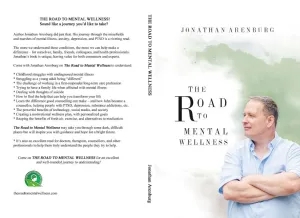As we watch 2022 leave in the rear-view mirror, why not use 2023 as a year of healing? To start, here are 10 Tips for Reducing Overthinking.
Follow us
Our commitment to our mental health is what will determine how good of a year we will have. So, I thought my first post of the new year would be about overthinking.
Overthinking is problematic because it is the lid of the rabbit hole and once you lift it, you know you’re falling in. However, in order to avoid a perpetual mental disaster, we need to know what tools to employ to help us minimize negative thinking too much.
So, without further ado, here they are. Please let us know if you find them helpful.
10 Tips for Reducing Overthinking
1 Recognize when you are overthinking. Being aware of when your thoughts are spiraling out of control can help you stop the cycle.
2 Challenge your thoughts. When you catch yourself overthinking, try to evaluate the accuracy of your thoughts. Are they based on facts or are they assumptions? Are they helpful or are they causing unnecessary stress?
3 Practice mindfulness. Being present in the moment can help ground you and keep you from getting caught up in negative thoughts.
4 Take a break. Step away from the situation that is causing you to overthink and engage in a relaxing activity, such as going for a walk or practicing deep breathing.
5 Get some exercise. Physical activity can help reduce stress and improve your overall well-being.
6 Connect with others. Talk to a friend or family member about what is causing you to overthink. Often, simply discussing your concerns with someone else can help put things in perspective.
7 Write down your thoughts. Keeping a journal can help you process your feelings and better understand your thought patterns.
8 Set aside specific times to think about certain issues. Rather than constantly ruminating, allow yourself designated times to think about and address your concerns.
9 Practice relaxation techniques. Techniques such as meditation, progressive muscle relaxation, and deep breathing can help calm your mind and reduce overthinking.
10 Seek professional help. If your overthinking is causing significant distress or interfering with your daily life, consider speaking with a mental health professional. They can help you develop coping strategies and address any underlying issues.
Announcement:
Latest Speaking Engagement
In February Jonathan will be a speaker at the Stop Depression summit. A summit that will provide those in attendance with the most up to date information on the subject of depression.
Join the thousand plus people already signed up! It’s Free and packed with some of the best experts on depression.

I am honored to be taking part in such a wonderfully resource rich summit with some of the foremost experts in the field.
Join the “Stop Depression Summit” Online For FREE
Who the Summit is For?
Those With Symptoms or Has Loved Ones With Them:
Helping Professionals:
- Depressed, tearful mood that is not connected to external factors
- Feelings of pointlessness
- Lack of interest in things that previously brought joy
- Constant physical weakness
- Lack of energy
- No desire to do anything
- Feelings of worthlessness
- Self-devaluation
- For Professionals
- Psychologists
- Coaches
- Students
- Marriage & Family Therapists
- Mental Health Professionals
- Stress Practitioners
- Addiction Counselors
- Nutritionists
- HR Professionals
- Communications Managers
- Counselors
- Organizational Change Management Specialists
- Physician Case Managers
- Therapists
- Medical Consultants
- Other Relevant Professionals
Finally, the thing to remember here is that your success will depend on the actions you take. Anything you incorporate is an improvement; improvements mean you’re growing. You’re off to a good start.
Download the audiobook version of the book, The Road To Mental Wellness FREE (CH’s 1 through 5 Here)
Follow us




Please leave a comment and tell us what you liked about what you read.